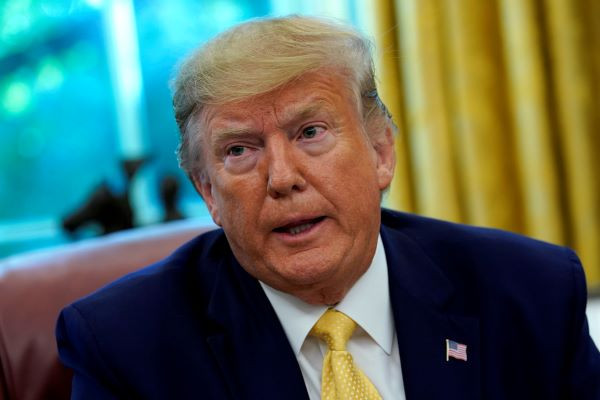Asian shares plummeted since Wednesday after US President Donald Trump threatened to increase Chinese import tariff rates if 'phase one' of the China-US trade war fails to commence soon.
Last Tuesday, Trump said in a statement that the US's trade agreement with China is almost complete. However, he added that he would raise tariff rates if China and the US would fail to reach an agreement no later than this year.
The rift between two countries then caused the market benchmarks for Asian financial markets to decline. Tokyo, Shanghai, and other countries within Southeast Asia plummeted altogether.
The Shanghai Composite Index (SCI) fell at 0.2 percent or 2,908.63 while the Nikkei 225 also declined by 0.9 percent or 23,303.13 after Trump's announcement. According to Business Inquirer, the Hang Seng also experienced a downfall of a total of 1.9 percent or 26,549 while the Kospi deteriorated to 0.8 percent or 2,124.68.
Other countries affected by the announcement were Sydney's S&P-ASX 200 which fell to 0.6 percent or 6.716. Singapore, New Zealand, and Taiwan's financial markets also declined as well.
The benchmark for the S&P index, on the other hand, soared to 3,100 level for the first time. However, the improvement was short-lived as the index fell by 0.2 percent or 3,091.84. The Dow Jones Industrial Average maintained its value at 27,691.49 while the Nasdaq improved by 0.3 percent which is now at 8,486.09.
In a previous report, CNBC News reported that Asian shared increased especially the Nikkei before the announcement was made. Last November 11, Trump claimed that the negotiations on the tariff hikes had been going very well and that the only matter left for discussion was the date of signing of the agreement.
During such time, the Nikkei increased by 0.2 percent which is its highest peak in 12 months. The Australian financial market also increased its value by 0.5 percent. However, the Kospi lost 0.2 percent last Monday. Thus, the Asia-Pacific shares also increased to 0.05 percent at 534.63.
According to Jingyi Pan of IG, Trump's comments were a mere reminder to China that the China-US trade war still faces problems. Pan also raised that the financial market investors saw the statements as positioning or that the president was testing the waters on how the market would react whenever the trade deal would not go according to plan.
Despite the announcement, momentum in financial markets had been increasing in the past five weeks. Communication services, technology, and health care industries have shown gains in terms of stocks last Tuesday. However, energy companies and other industries have lost value in the last two days.






